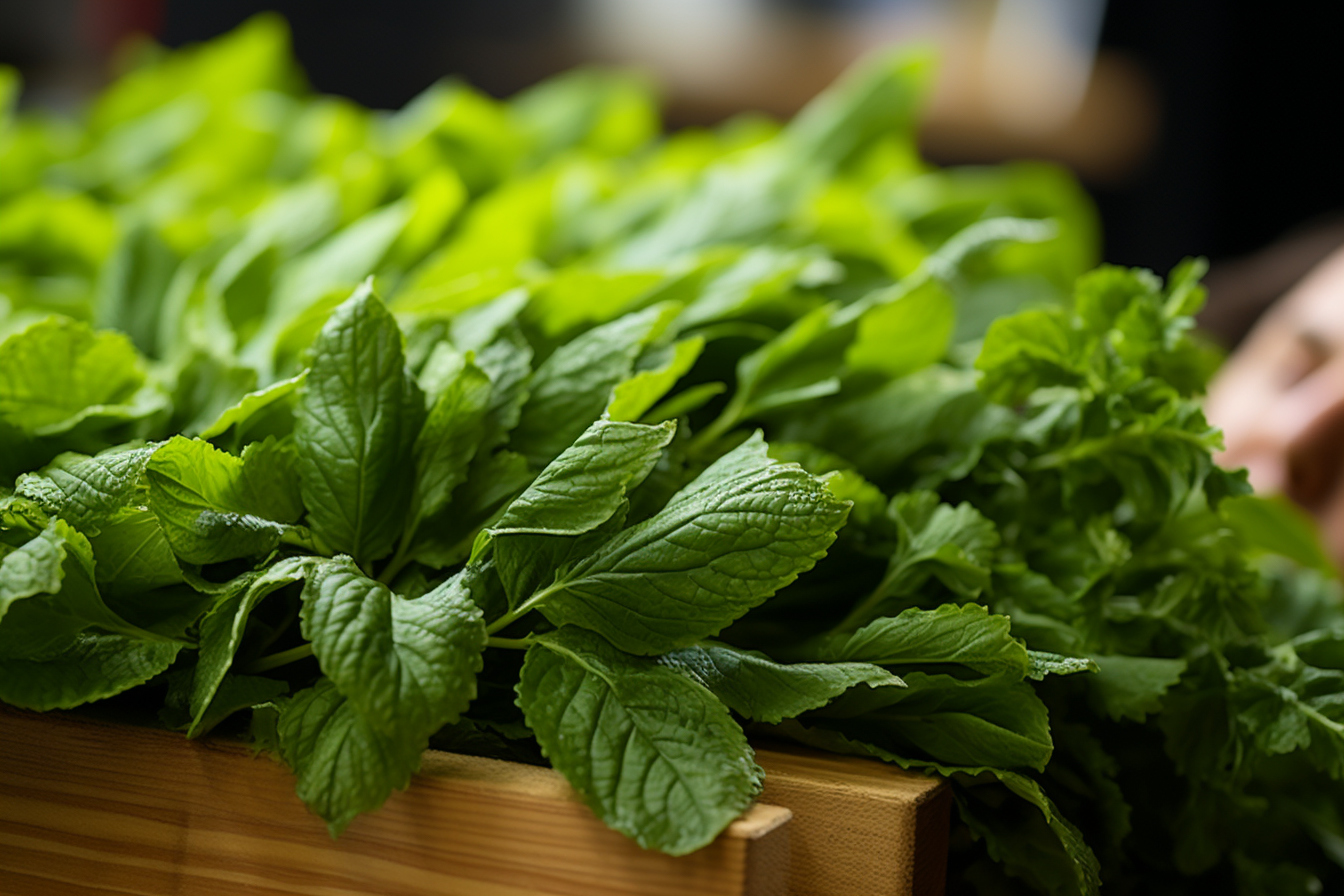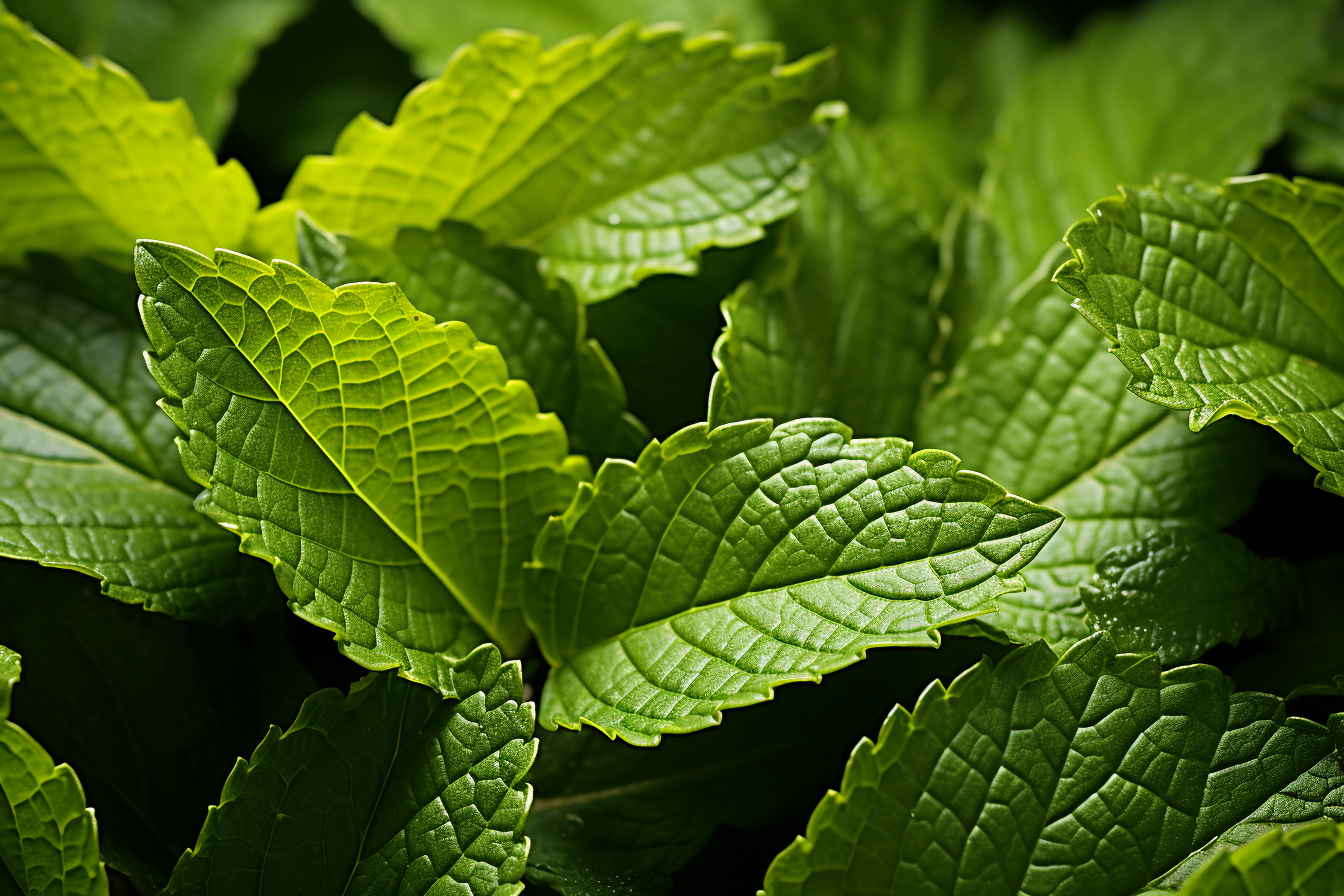Lemon balm is a plant with many medicinal properties that are often overlooked. Among its unsuspected benefits, we find in particular its effectiveness in combating insomnia.
Lemon balm: a natural remedy to get back to sleep
Lemon balm, also known as lemon balm, is an herbaceous plant in the Lamiaceae family. Native to the Mediterranean region, it has been cultivated for centuries for its medicinal uses. Its lemony scent and its oval, wrinkled leaves make it a true jewel of nature.

Soothing properties for restful sleep
Lemon balm has soothing properties that promote restful sleep. Indeed, this plant contains active compounds such as flavonoids and phenolic acids, which act on the nervous system to induce deep relaxation. These relaxing properties help reduce anxiety and tension accumulated during the day, thus promoting falling asleep and maintaining deep sleep.
How to benefit from the benefits of lemon balm?
To benefit from the benefits of lemon balm, several options are available to you. The simplest is to prepare an infusion made from dried lemon balm leaves. To do this, simply pour hot water over a teaspoon of dried leaves and let it infuse for around ten minutes. You can also add a little honey to sweeten the taste of the herbal tea.
Another way to benefit from the soothing properties of lemon balm is to use its essential oil. Diluted in vegetable oil, you can lightly massage your temples and neck before going to bed. The delicate scent of lemon balm will act as a real balm for the mind, thus promoting relaxation and restful sleep.
Scientific studies to confirm its effectiveness
The effectiveness of lemon balm in combating insomnia has been demonstrated by several scientific studies. A 2011 study found that consuming lemon balm as an infusion could significantly improve sleep quality in people with mild to moderate insomnia. Another study, published in 2019, showed that inhaling lemon balm essential oil could reduce sleep disorders in older adults.
These various studies have confirmed the benefits of lemon balm for sleep. This natural plant offers an interesting alternative to sleeping pills and medicinal treatments, which are often accompanied by adverse effects. In addition, its use is risk-free, non-addictive and suitable for all types of sleepers.
Culinary use of lemon balm: beyond medicine
Although lemon balm is known primarily for its medicinal benefits, it also offers benefits in the kitchen that often remain underestimated. Its lemony aroma and delicate flavor make it a valuable addition to various recipes.
A distinctive aroma for a refreshing touch
Lemon balm, with its lemony scent, is often used as an aromatic herb in various dishes. It can be incorporated into salads, soups or even main dishes to give them a fresh and distinct flavor. For example, sprinkling chopped lemon balm on a summer salad can bring a burst of freshness to every bite.
A key ingredient in drinks
This plant is also a popular ingredient in drinks, particularly during warm months. In addition to the traditional infusion that relieves insomnia, it can be added to lemonades, iced teas or even cocktails for a subtle lemony note. For example, lemon balm lemonade can be a refreshing alternative to classic lemonade.
Lemon balm flavored desserts
Lemon balm also finds its place in the world of baking. Its lemony taste goes well with citrus-based desserts, such as tarts, mousses or cakes. In addition, it can be used to flavor ice creams or sorbets, thus offering a refreshing taste escape.
Many Ways to Incorporate Lemon Balm into Your Cooking
A condiment for your dishes
Surprisingly, lemon balm can be used as a condiment to enhance the flavor of your dishes. By finely chopping it, it can be mixed into salad dressings, sauces or even marinades. This method of use allows you to infuse your dishes with a lemony delicacy, making each bite even more memorable.
Companion to fish and seafood
Fish and seafood, with their delicate flavor, can greatly benefit from the addition of lemon balm. By combining it with ingredients like lemon, garlic and olive oil, you get a perfect marinade for your fish dishes. The lemony sweetness of lemon balm will highlight the flavor of the seafood without overpowering it.
Integration into pastas and risottos
Adding chopped lemon balm to dishes such as pasta or risotto can transform an ordinary dish into a delicious and aromatic delicacy. By mixing it with ingredients like lemon zest, garlic and parmesan, you get a flavor combination that will delight your taste buds.
Anti-inflammatory and antioxidant properties: explore the other benefits of lemon balm
If the soothing power of lemon balm is widely recognized and appreciated for promoting restful sleep, this plant has other equally remarkable benefits. Beyond its use in cooking and to treat sleep disorders, it offers anti-inflammatory and antioxidant properties which deserve to be highlighted.
Benefits for the skin and joints
Thanks to its anti-inflammatory properties, lemon balm can be a valuable ally in soothing skin irritations. Whether it’s rashes, insect bites or small burns, an infusion of this plant can help relieve these ailments. In addition, for those who suffer from joint inflammation, regularly consuming lemon balm in the form of an infusion could help reduce pain.
A shield against oxidative stress
The antioxidants found in lemon balm protect the body’s cells from damage caused by free radicals. The latter, often associated with premature aging and various diseases, are neutralized by the active compounds of lemon balm. So, incorporating this plant into your diet could help strengthen the immune system and maintain healthy skin.
Support for digestion
Another lesser known, but equally beneficial, aspect of lemon balm is its positive effect on digestion. It can help relieve bloating, cramps and indigestion. A cup of infusion after a hearty meal can facilitate digestion and provide a feeling of lightness.












